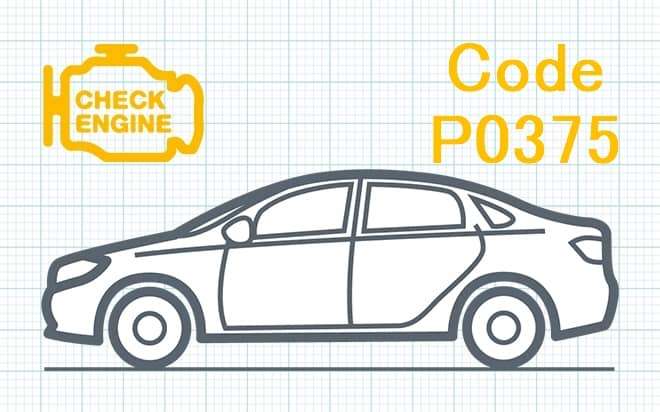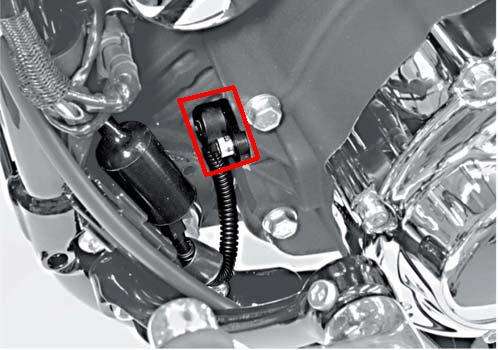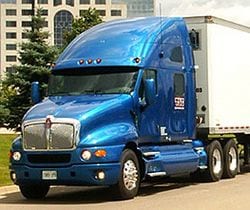
P0375 High Resolution B Signal Phase Timing Malfunction
Content
P0375 – OBD-II Trouble Code Technical Description
Trouble code P0375 indicates that the transmission control module (PCM) has detected a problem with the vehicle's timing system high resolution reference “B” signal.
What does the fault code mean P0375?
Trouble code P0375 indicates a problem with the high resolution crankshaft reference (CKP) sensor signal. This means that the vehicle's engine control module (ECM) or transmission control module (PCM) has detected an abnormality in the signal that is normally used to properly synchronize the engine and transmission.

Possible reasons
Several possible reasons that could trigger the P0374 trouble code:
- Faulty crankshaft position (CKP) sensor: The CKP sensor is responsible for transmitting the crankshaft position signal to the engine management system. If the sensor is faulty or giving an incorrect signal, it can cause P0374.
- Problems with wiring and connections: Opens, shorts, or other problems with the wiring, connections, or connectors between the CKP sensor and the engine control module can cause P0374.
- Crankshaft sensor disc: Damage or wear to the crankshaft sensor disc may cause the signal to not be read correctly, causing P0374.
- Problems with the engine control module (ECM) or transmission control module (PCM): Malfunctions in the ECM or PCM, which are responsible for processing signals from the CKP sensor and synchronizing the operation of the engine and automatic transmission, can also cause the P0374 code.
- Problems with the ignition system or fuel injection system: Malfunctions in other components of the ignition or fuel injection system, such as ignition coils, spark plugs, or injectors, can cause the CKP sensor to malfunction and cause trouble code P0374.
- Problems with the crankshaft gear or teeth: If the crankshaft gear or teeth are damaged or worn, it may affect the signal from the CKP sensor and cause P0374.
These are just a few examples of causes, and to accurately determine the cause of the P0374 code, it is recommended that you conduct a detailed diagnosis of the vehicle using diagnostic equipment or contact a professional auto mechanic.
What are the symptoms of a fault code? P0375?
Symptoms for DTC P0375 may include the following:
- Problems with starting the engine: Rough engine starting or complete refusal to start may be one of the first signs of a problem with the crankshaft position (CKP) signal.
- Rough engine operation: Observing rough engine operation, such as rattling, jerking, or rough idling, may also indicate problems with the CKP signal.
- Loss of power: If the CKP signal is incorrect, the engine may lose power, resulting in poor overall vehicle performance.
- Increased fuel consumption: Incorrect operation of the CKP signal may cause inefficient fuel combustion, which may result in increased fuel consumption.
- Check Engine Light: The check engine light turning on on your car's dashboard is one of the most common symptoms of the P0375 code. This indicator warns the driver of possible problems with engine operation.
- Gear shifting problems (for automatic transmissions): If the vehicle is equipped with an automatic transmission, errors with the CKP signal may cause problems with gear shifting or sudden movements.
These symptoms may occur to varying degrees and depending on the specific problem. If you experience these symptoms, it is recommended that you immediately contact a professional auto mechanic to diagnose and repair the problem.
How to diagnose a fault code P0375?
The following steps are recommended to diagnose DTC P0375:
- Scanning error codes: Use a diagnostic scanner to read error codes in the engine management system. Check that the P0375 code is indeed present in the ECM (or PCM) memory and make sure that this is the root problem.
- Checking wiring and connections: Inspect the wiring and connectors connecting the crankshaft position (CKP) sensor to the ECM (or PCM). Look for possible breaks, corrosion or damage to the wiring. Make sure the connectors are connected correctly.
- Checking the Crankshaft Position (CKP) Sensor: Check the CKP sensor for damage or wear. Make sure it is installed correctly and has proper contact with the crankshaft.
- Using an Oscilloscope: Connect an oscilloscope to the output signal of the CKP sensor and check its waveform and frequency. Make sure the signal meets the manufacturer's specifications.
- Checking the crankshaft gear: Check the condition of the crankshaft sprocket for damage or wear. Make sure the gear is installed correctly and has no problems.
- Check ECM (or PCM): Check the ECM (or PCM) for problems processing signals from the CKP sensor. If necessary, perform additional tests or diagnostics to determine the problem with the ECM (or PCM).
- Additional diagnostics: If all of the above steps do not lead to identifying the cause of the P0375 code, more detailed diagnostics of the ignition system components, fuel injection system and other related systems may be required.
After diagnosing and identifying the cause of the P0375 code, you must make the necessary repairs or replace the faulty components. If you do not have experience in diagnosing a vehicle, it is recommended that you contact a qualified auto mechanic or service center.
Diagnostic errors
When diagnosing DTC P0375, the following errors may occur:
- Incorrect interpretation of error code: One common mistake can be misinterpreting the P0375 error code. This may lead to incorrect diagnosis and replacement of unnecessary components.
- Skipping important diagnostic steps: Failure to perform all necessary diagnostic steps, such as checking wiring, CKP sensor and ECM (or PCM), may result in insufficient or incomplete identification of the cause of the error.
- Incorrect use of diagnostic equipment: Incorrect use of a diagnostic scanner or oscilloscope may lead to incorrect diagnostic results.
- Neglect of the environment: Some errors may be due to insufficient attention to the environment, such as poor lighting, insufficient protection from dust and dirt, which may lead to incorrect diagnostic data.
- Failure to meet manufacturer specifications: The use of low-quality or incompatible components with the vehicle during diagnosis or replacement can also lead to errors and incorrect conclusions.
To avoid these mistakes, it is important to follow the vehicle manufacturer's diagnostic procedures, use quality diagnostic equipment, and seek professional help when necessary.
How serious is the fault code? P0375?
Trouble code P0375 is serious because it indicates a problem with the vehicle's timing system high resolution “B” reference signal. This signal is critical for the proper operation of the engine and transmission. If left uncorrected, it can cause the engine to not operate properly, lose power, degrade performance, and other serious vehicle problems.
It is important to note that a P0375 trouble code may cause the vehicle's engine to fail to start or run rough, which may pose a safety hazard to the driver and passengers. Therefore, it is recommended that you immediately contact a qualified auto mechanic to diagnose and repair the problem.
What repair will help eliminate the code? P0375?
Troubleshooting DTC P0375 may require the following:
- Replacing the Crankshaft Position (CKP) Sensor: If the CKP sensor is faulty or gives an incorrect signal, it should be replaced with a new one. Make sure the new sensor meets the manufacturer's specifications.
- Checking and replacing wiring and connectors: Check the wiring and connectors connecting the CKP sensor to the ECU for corrosion, breaks or other damage. Replace damaged components if necessary.
- Checking the crankshaft gear or teeth: Check the condition of the crankshaft gear or teeth for damage or wear. If damage is found, replace the relevant components.
- Updating ECU software (firmware): Sometimes timing problems can be due to errors in the ECU software. Check for firmware updates and update if necessary.
- Checking and servicing other system components: Check the condition of other components of the ignition system, fuel injection system and exhaust system. Service or replace these components as necessary.
- Diagnosing and fixing other problems: If the P0375 trouble code persists after completing the above steps, additional diagnostics may be required to identify other potential problems.
It is important to note that in order to successfully resolve the P0375 code, you must perform diagnostics, determine the source of the problem, and perform the appropriate repairs or replacement of the faulty components. If you do not have the necessary experience or skills to perform this work yourself, it is recommended that you contact a professional auto mechanic or service center.
P0375 – Brand-specific information
Trouble code P0375 relates to the vehicle's timing system and can be common to different makes and models of vehicles. It indicates problems with the high resolution reference “B” signal. A few examples of car brands with their meanings for trouble code P0375:
- Chevrolet: Trouble code P0375 indicates a problem with the high-resolution reference “B” signal of the timing system.
- Ford: Trouble code P0375 indicates incorrect crankshaft signal timing.
- Toyota: Trouble P0375 indicates a problem with the crankshaft position signal.
- Honda: Trouble code P0375 is related to the crankshaft reference sensor signal.
- BMW: Trouble P0375 is related to the timing of the crankshaft position signal.
These are just a few examples of car brands where the P0375 code may occur. It is important to note that specific meanings and interpretations may vary depending on the model and year of the vehicle. If you are experiencing a problem with a P0375 code, it is recommended that you consult your specific vehicle's owner's manual or take it to a qualified auto mechanic for further diagnosis and repair.

